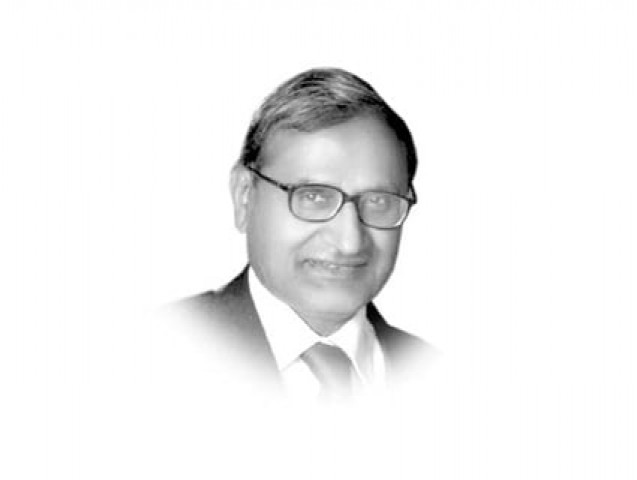Bad economy: not my fault
Shaikh seems to have understood that political power will never be deployed to implement economic reform.

The minister began with an assurance of a plentiful supply. This was all there was plenty of, given a low GDP growth of 3.7 per cent, a full percentage point of which resulted from twisting the arms of the ‘autonomous’ Pakistan Bureau of Statistics. It would have been higher, he lamented, had last year’s growth not been revised upwards to three per cent. Agricultural growth would be higher, had there been no floods. But for the misbehaving oil prices and energy demand, industrial growth would have brought overall growth into the desired range of 5-6 per cent. Had there been no National Finance Commission award, the federal government would have had enough resources to augment energy supply and keep it affordable. And if only the government departments were not stealing electricity and paid their bills!
Inflation, the minister said triumphantly, was on the decline: tight monetary policy and a 10 per cent reduction in civilian government expenditure had done it. The fact is that the non-debt and non-military current expenditure of the federal government is the smallest part of the pie. Government borrowing was twice the size compared to the previous year and the State Bank of Pakistan has been on the path of monetary easing. At 11.1 per cent, food inflation is higher than non-food inflation. A 25 per cent increase in tax collection was attributed to the great efforts made by the Federal Board of Revenue. Double-digit inflation, high prices of oil and the depreciation of the rupee to the extent of 3.2 per cent made no mean contribution to it. At any rate, the tax-to-GDP ratio remains stagnant. The minister blames it on the rich and the powerful refusing to pay their share of the tax.
He is no more talking about reforming the failing collectors or expanding the tax net.
It was amusing to see the re-elected senator, Minister Sheikh, maintain that the economy is a source of worry to all; and that this is not a political issue. He seems to have understood that political power will never be deployed to implement economic reform. The word ‘reform’ was uttered not even once. The new growth strategy of the Planning Commission downplays the role of investment and capital accumulation in achieving high growth. Its emphasis is on what it calls the ‘software’ of economic growth — issues of economic governance, institutions, incentives and human resources.
By giving up on reform, the finance minister has served a deathblow to the Planning Commission’s software of growth. On the other hand, the Commission has achieved the objective of dethroning investment. Fixed investment has made a negative contribution to growth since 2008-09. Not only is GDP growth low, its composition is worrisome too. In the overall growth of 3.7 per cent, 2.2 percentage points is contributed by the services sector. Within the services sector, the fastest-growing subsectors are finance, insurance and social and community services. In other words, growth is being driven by consumption. Investment is dead.
Long live the Planning Commission.
Published in The Express Tribune, June 3rd, 2012.















COMMENTS
Comments are moderated and generally will be posted if they are on-topic and not abusive.
For more information, please see our Comments FAQ